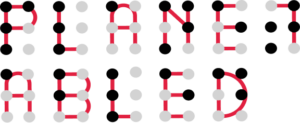
Accessibility and Inclusion in Mainstream Tourism
This session is addressing the untapped tourism market for people with disabilities, estimated to be 15% of the world population (roughly 1.3 billion people) and over 1 billion people over the age of 60, overall having USD 13.1 trillion in disposable income.
With an estimated 700,000 hotels and resorts world wide with over 16 million hotel rooms, solutions like Airbnb with 4 million hosts and 6 million+listings on the platform, over 100,000+ Museums, 2500+ UNESCO heritage sites, and other public spaces across regions, most of them remain inaccessible for travelers with disabilities and the elderly.
This session calls for contributions studying, evaluating, providing data and examples, conceptionalising and implementing new and innovative approaches to inclusive touristic experiences and the individual, social and economic impact. This includes but is not limited to
- domains as accessibility in built envrionment, culture, nature, sports, religion
- smart environments
- data collection, generation and use for user and touristic offer assessment (information systems)
- accessible and disability aware restaurants and catering
- new methods and approaches as user centred design, design thinking and peer to peer couseling
- disability service preparation, planning, booking and provision: transforming our extensive/growing knowledge and experience into a practical methodology that helps people to assess their accessibility and plan interventions
- global cooperation and exchange in R&D related to accessible tourisme
- new business concepts and capacity building and training: create a global community of policy makers, administrators, ambassadors, trainers, changemakers from tourism boards, municipalities, hotels/restaurants chains, destination/marketing organizations and similar entities as well as technology experts
- quality assurance and certification approaches: to help people and organizations communicate their successes, to improve trust and demand and to reduce frustration and fears
- approaches to high quality evaluation and feedback for continuous improvement
Enforcing R&D should enable the tourism sector to reach out for high performing solution, harmonized for developed and developing nations. This should help to fill the huge gap that exists between what anestablishment considers accessible and what the disabled consumer expects to experience, thus leading to a movement where the professionals ,businesses, and tourism stakeholders are activated to contribute.
This session is organised in cooperation with PlanetAbled and AccessibleEU.
Join us in Linz to make toursm accessible!.
Chairs

Klaus Höckner, Hilfsgemeinschaft der Blinden und Sehschwachen Österreichs
Neha Aurora, PlanetAbled
Contributions to a STS have to be submitted using the standard submission procedures of ICCHP24.
When submitting your contribution please make sure to select the right STS from the drop-down list "Special Thematic Session". Contributions to a STS are evaluated by the Programme Committee of ICCHP-AAATE and by the chair(s) of the STS. Please get in contact with the STS chair(s) for discussing your contribution and potential involvement in the session.





